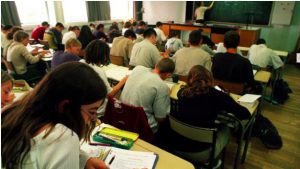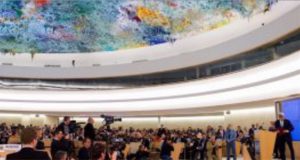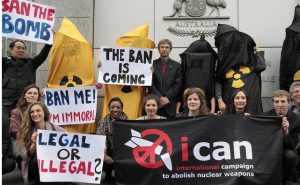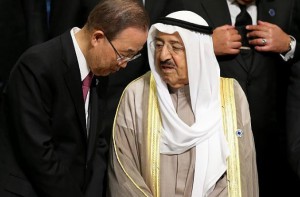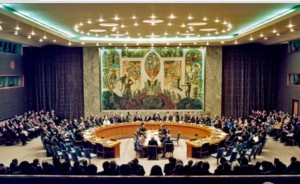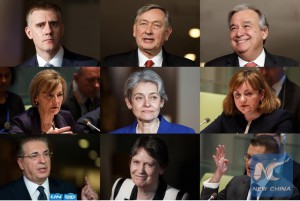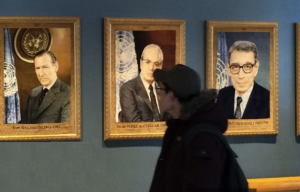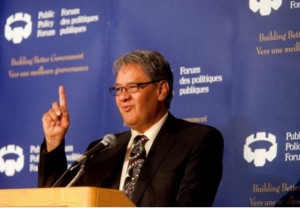TOLERANCE AND SOLIDARITY .
Taken from the UN website, 15 January 2016
I would like to thank your Excellency, Mr. President for organizing this very important occasion for me to brief the General Assembly about my Plan of Action to Prevent Violent Extremism, and to call for a new global partnership to confront this menace.
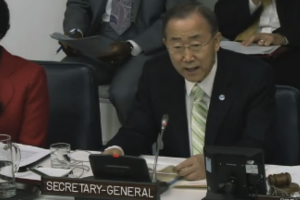
You have had a chance to review the plan, which is the product of many months of consultations. Let me thank you for your engagement and good ideas.
I would like to make a few brief comments, but I would also like to hear from you.
Violent extremism is a direct assault on the United Nations Charter and a grave threat to international peace and security.
We are all appalled by the barbaric crimes that terrorist groups such as Daesh, Boko Haram and others are committing against humanity.
They have brazenly kidnapped young girls, systematically denied women’s rights, destroyed cultural institutions, warped the peaceful values of religions, and brutally murdered thousands of innocents around the world.
These groups have become a magnet for foreign terrorist fighters, who are easy prey to simplistic appeals and siren songs.
The threat of violent extremism is not limited to any one religion, nationality or ethnic group.
Let us also recognize that today, the vast majority of victims worldwide are Muslims.
Addressing this challenge goes to the heart of the United Nations. And it compels us to act in a way that solves – rather than multiplies — the problem.
Many years of experience have proven that short-sighted policies, failed leadership, heavy-handed approaches, a single-minded focus only on security measures and an utter disregard for human rights have often made things worse.
Let us never forget: Terrorist groups are not just seeking to unleash violent action, but to provoke a harsh reaction.
We all lose by responding to ruthless terror with mindless policy – policies that turn people against each another, alienate already marginalized groups, and play into the hands of the enemy.
We need cool heads and common sense. We must never be ruled by fear – or provoked by those who strive to exploit it.
Countering violent extremism should not be counter-productive.
My Plan of Action takes a practical and comprehensive approach to address the drivers of violent extremism. It focuses on violent extremism which can be conducive to terrorism.
It puts forward more than 70 recommendations for concerted action at the global, regional and national levels, based on five inter-related points:
Number one, we must put prevention first.
The international community has every right to defend against this threat using lawful means, but we must pay particular attention to addressing the causes of violent extremism if this problem is to be resolved in the long run.
There is no single pathway to violent extremism. But we know that extremism flourishes when human rights are violated, political space is shrunk, aspirations for inclusion are ignored, and too many people – especially young people – lack prospects and meaning in their lives.
As we see in Syria and Libya and elsewhere, violent extremists make unresolved and prolonged conflicts even more intractable.
We also know the critical elements for success: Good governance. The rule of law. Political participation. Quality education and decent jobs. Full respect for human rights.
The recent report of the High-level Panel on Peace Operations, the 2030 Agenda for Sustainable Development, the reviews of the Peacebuilding Architecture and the Women, Peace and Security agenda – as well as Security Council Resolution 2250 on Youth, Peace and Security — have all stressed that we need to make prevention work.
(article continued on the right side of the page)
Question for this article
Islamic extremism, how should it be opposed?
Readers’ comments are invited on this question and article. See below for comments box.
(article continued from the left side of the page)
We need to make a special effort to reach out to young people and recognize their potential as peacebuilders.
Through a global partnership, we need to build on the positive vision of the future that many young people are themselves constructing. The protection and empowerment of women must also be central to our response.
Second, principled leadership and effective institutions.
Poisonous ideologies do not emerge from thin air. Oppression, corruption and injustice are greenhouses for resentment. Extremists are adept at cultivating alienation.
That is why I have been urging leaders to work harder to build inclusive institutions that are truly accountable to people. I will continue to call on leaders to listen carefully to the grievances of their people and then act to address them.
Third, preventing extremism and promoting human rights go hand-in-hand.
All too often, national counter-terrorism strategies have lacked basic elements of due process and respect for the rule of law.
Sweeping definitions of terrorism or violent extremism are often used to criminalize the legitimate actions of opposition groups, civil society organizations and human rights defenders. Governments should not use these types of sweeping definitions as a pretext to attack or silence one’s critics.
Once again, violent extremists deliberately seek to incite such over-reactions. We must not fall into the trap.
Fourth, an all-out approach.
The Plan proposes an “all of Government” approach.
We must break down the silos between the peace and security, sustainable development, human rights and humanitarian actors at the national, regional and global levels—including at the United Nations.
The Plan also recognizes that there are no “one size fits all” solutions.
That is why the Plan calls for national ownership, recommending that each Member State adopt a National Plan of Action that sets priorities, such as promoting access to justice, strengthening institutions, and investing in education programmes that foster pluralism.
We must also engage all of society – religious leaders, women leaders, youth groups leaders in the arts, music and sports, as well as the media and private sector
Fifth, UN engagement.
I intend to strengthen a UN system-wide approach to supporting Member States’ efforts to address the drivers of violent extremism.
Acting within their mandates, UN missions and country teams will support Member States when developing National Plans of Action and will review their own activities.
I am also creating a UN system-wide High-Level PVE Action Group, to spearhead the implementation of this Plan at both the Headquarters and field levels.
The Plan before you builds on your own efforts and initiatives, including General Assembly resolutions on the Global Counter-Terrorism Strategy and a “World against Violence and Violent Extremism”, as well as Security Council measures, including resolutions 2178 on foreign terrorist fighters and 2253 on Daesh.
Some Member States have already pledged to help transform the Plan from ideas to reality. I look forward to the International Conference on the Plan of Action that the Swiss Government has offered to co-organize with the United Nations in Geneva in April.
Above all, the Plan is an urgent call to unity and action. The General Assembly is the only forum with the legitimacy and universality to address this problem in all its complexity.
Together, let us pledge to forge a new global partnership to prevent violent extremism.
Thank you.
